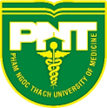The Importance of Health Literacy in Preventing Non-Communicable Diseases
Non-communicable diseases (NCDs) are a growing concern worldwide. These chronic illnesses, such as heart disease, diabetes, and cancer, account for a significant number of deaths globally. While there are various factors that contribute to the development of NCDs, one critical aspect that often gets overlooked is health literacy.
Health literacy refers to an individual’s ability to understand and use health information to make informed decisions about their health and healthcare. It encompasses not just the ability to read and comprehend health-related materials but also the capacity to navigate the healthcare system, communicate effectively with healthcare providers, and critically evaluate health information.
The Link Between Health Literacy and NCDs
Low health literacy is associated with poorer health outcomes and increased healthcare costs. Several studies have shown that individuals with low health literacy are more likely to engage in unhealthy behaviors, have difficulty managing chronic conditions, and experience higher rates of hospitalization and emergency room visits.
When it comes to NCDs prevention, health literacy plays a crucial role. People with higher health literacy are more likely to engage in healthy behaviors, such as maintaining a balanced diet, engaging in regular physical activity, and avoiding tobacco and excessive alcohol consumption. They are also more likely to adhere to prescribed medications and follow recommended preventive measures, such as regular screenings and vaccinations.
Challenges in Health Literacy and NCDs Prevention
Improving health literacy is not without its challenges. One major obstacle is the complexity of health information. Medical jargon, technical terms, and lengthy documents can make it difficult for individuals to understand and apply the information to their own health. Clear and concise communication is essential to bridge this gap.
Another challenge lies in the accessibility of health information. Many individuals may not have access to reliable sources of information or may struggle to find information that is relevant to their specific needs. It is crucial to provide easily accessible and culturally appropriate health information to empower individuals to make informed decisions.
Strategies to Improve Health Literacy for NCDs Prevention
Addressing health literacy requires a multi-faceted approach involving healthcare providers, policymakers, and the community. Here are some strategies to improve health literacy and promote NCDs prevention:
- Clear and Simple Communication: Healthcare providers should use plain language, avoid jargon, and ensure that information is easily understood by patients. Visual aids and multimedia resources can also enhance comprehension.
- Health Education Programs: Implementing educational programs that focus on NCDs prevention can empower individuals to take control of their health. These programs should be tailored to the specific needs and cultural backgrounds of the target population.
- Collaboration and Partnerships: Healthcare providers, community organizations, and policymakers should collaborate to develop and disseminate accurate and reliable health information. This can be done through partnerships with local schools, workplaces, and community centers.
- Technology and Digital Tools: Utilize technology to improve access to health information. Mobile apps, websites, and online platforms can provide individuals with easy access to reliable resources and interactive tools for self-management.
- Health Literacy Assessment: Regularly assess the health literacy levels of individuals and communities to identify areas for improvement and tailor interventions accordingly.
The Impact of Health Literacy on NCDs Prevention
Improving health literacy has the potential to significantly impact the prevention and management of NCDs. By empowering individuals with the knowledge and skills to make informed decisions about their health, we can reduce the burden of NCDs and improve overall health outcomes.
Health literacy is not just about providing information; it is about fostering a healthcare system that is accessible, understandable, and responsive to the needs of individuals. By prioritizing health literacy, we can create a healthier and more informed society.
Remember, prevention is always better than cure. Let’s work together to promote health literacy and prevent non-communicable diseases.
